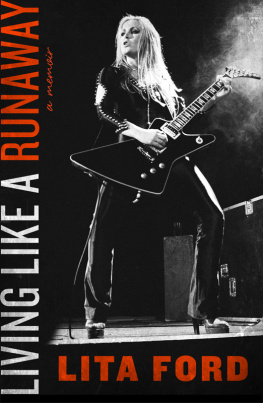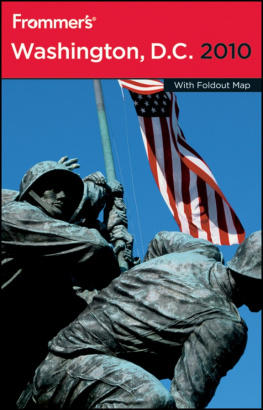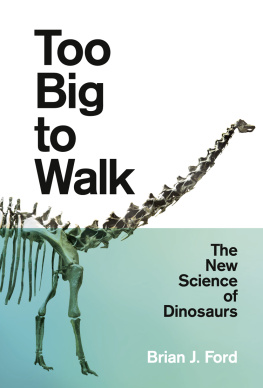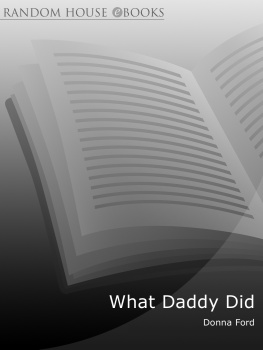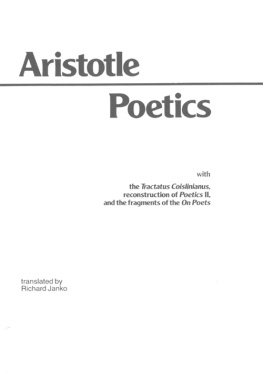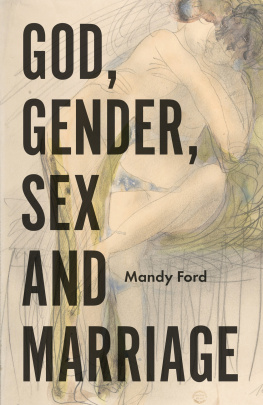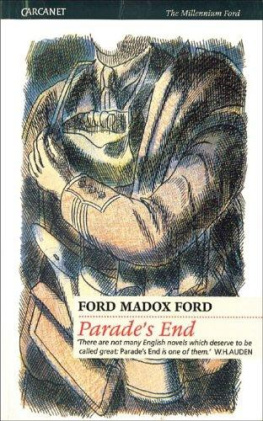Ford - Gender and the Poetics of Excess: Moments of Brocade
Here you can read online Ford - Gender and the Poetics of Excess: Moments of Brocade full text of the book (entire story) in english for free. Download pdf and epub, get meaning, cover and reviews about this ebook. year: 2009;1997, publisher: University Press of Mississippi, genre: Romance novel. Description of the work, (preface) as well as reviews are available. Best literature library LitArk.com created for fans of good reading and offers a wide selection of genres:
Romance novel
Science fiction
Adventure
Detective
Science
History
Home and family
Prose
Art
Politics
Computer
Non-fiction
Religion
Business
Children
Humor
Choose a favorite category and find really read worthwhile books. Enjoy immersion in the world of imagination, feel the emotions of the characters or learn something new for yourself, make an fascinating discovery.

- Book:Gender and the Poetics of Excess: Moments of Brocade
- Author:
- Publisher:University Press of Mississippi
- Genre:
- Year:2009;1997
- Rating:4 / 5
- Favourites:Add to favourites
- Your mark:
- 80
- 1
- 2
- 3
- 4
- 5
Gender and the Poetics of Excess: Moments of Brocade: summary, description and annotation
We offer to read an annotation, description, summary or preface (depends on what the author of the book "Gender and the Poetics of Excess: Moments of Brocade" wrote himself). If you haven't found the necessary information about the book — write in the comments, we will try to find it.
Ford: author's other books
Who wrote Gender and the Poetics of Excess: Moments of Brocade? Find out the surname, the name of the author of the book and a list of all author's works by series.
Gender and the Poetics of Excess: Moments of Brocade — read online for free the complete book (whole text) full work
Below is the text of the book, divided by pages. System saving the place of the last page read, allows you to conveniently read the book "Gender and the Poetics of Excess: Moments of Brocade" online for free, without having to search again every time where you left off. Put a bookmark, and you can go to the page where you finished reading at any time.
Font size:
Interval:
Bookmark:
Gender and the Poetics of Excess
Moments of Brocade
Karen Jackson Ford

Copyright 1997 by University Press of Mississippi
All rights reserved
Manufactured in the United States of America
Print-on-Demand Edition
The paper in this book meets the guidelines for permanence and durability of the Committee on Production Guidelines for Book Longevity of the Council on Library Resources.
Library of Congress Cataloging-in-Publication Data
Ford, Karen Jackson.
Gender and the poetics of excess : moments of brocade / Karen
Jackson Ford.
p. cm.
Includes bibliographical references and index.
ISBN 1-57806-006-0 (cloth : alk. paper)
1. American poetryWomen authorsHistory and criticism.
2. Women and literatureUnited StatesHistory20th century
3. Experimental poetry, AmericanHistory and criticism.
4. American poetry20th centuryHistory and criticism.
5. AuthorshipSex differences. 6. Literary form. I. Title.
PS151.F67 1997
811.0099287dc21 97-18929
CIP
To
Donald Laird
Fantastic Flourishes of Gold Thread
Moments of Brocade
CHAPTER 3. GERTRUDE STEIN
A Crazy Quilt of Style
Splitting the Seams of Fancy Terza Rima
We Survive in Patches Scraps
Proper acknowledgment must go back many years to Barry Lia, for a gift of Dickinsons complete poems, and to Patrick Murphy, for the three-volume set of Dickinsons letters. Since their initial generosity, many friends and colleagues have graciously contributed their time and expertise to this study. I am grateful to Leon Chai, Joanne Cutting-Gray, Claudia Johnson, Christine Krueger, Carol Thomas Neely, William Schroeder, and Paula Treichler for reading early drafts of some of these chapters and to Forest Pyle, George Rowe, and Louise Westling for their comments on more recent chapters. Susan Anderson provided excellent research assistance on the Black Arts chapter. The interest and moral support of others also sustained me in my work; for their encouragement throughout the whole project, I am grateful to my mother, Bernadette Ford, and my friends, Marcia Baron, Melody Kirk Wagner, Teresa Mangum. Sally McMahan, and Cara Ryan.
I am grateful to the University of Oregon Office of Research and Sponsored Programs for a New Faculty Development Grant that enabled me to spend a summer working on the Black Arts chapter.
I owe special debts of gratitude to Cary Nelson, Kathleen Karlyn, and Donald Laird. Cary Nelson has guided and supported my work from the beginning, read tirelessly and commented rigorously on successive drafts, and provided encouragement and inspiration at every turn. His rare respect for reading poetry carefully heartened me in the task of reading the work of these difficult poets. I am pleased to thank Kathleen Karlyn for her extraordinary intellectual generosity and her loyalty. Finally, Donald Laird read and commented on every aspect of this study. His sensitive and sensible contributions reverberate at every level, from stylistic improvements to conceptual clarity. For that, and for filling our days with poems, I dedicate these moments of brocade to him.
The Poetics of Excess
The mythic weaver Philomela has long fascinated feminist literary critics, who recognize in her predicament the situation of many women writers in a masculinist culture traditionally suspicious of womens words and desirous of their silence. Philomela, the innocent sister of Procne, raped and mutilated by Procnes husband Tereus, communicates with her sister, even though Tereus has cut out her tongue and locked her away, by weaving her story in cloth and sending it to Procne. Procne frees Philomela, and the two take revenge on Tereus by killing his son, Itys, and serving him to his father. When Tereus learns that he has eaten the flesh of his flesh, he attempts to kill his wife and sister-in-law, but the women flee and in their flight are transformed into birds, a swallow and a nightingale. Cheryl Walkers important 1982 study of American women poets, The Nightingales Burden, emphasizes Philomelas need to communicate her oppression: Both as a defiled woman and as an artist urgently desiring to communicate through symbolic forms. Philomela is the type of American women poets in the nineteenth century (21). Playing on the double sense of burden as a poetic refrain and something onerous, Walker identifies a nightingale tradition, bound up with themes of aspiration and frustrated longing (15): What is significant about this myth is the way it records the burden of woe the nightingale carries and the peculiarly autobiographical emphasis of her art, an emphasis not lost upon another woman (22). In 1979, in an earlier groundbreaking study, The Madwoman in the Attic, Sandra Gilbert and Susan Gubar had also invoked the myth of Philomela and Procne to figure forth the cultural predicament of women writers: From the abused Procne to the reclusive Lady of Shallott [another isolated weaver from a Tennyson poem of the same name] women have been told that their art is an art of silence (43). Philomelas appeal for feminist critics is, of course, that she overcomes silence through art; however, her art, as the phrase nightingales burden suggests, inevitably expresses her silencing.
This Philomela provides an apt metaphor for the marginalized writer, yet a more complicated Philomela might serve us even better. One of the surprises of reviewing Ovids version of the myth is to discover a verbally aggressive Philomela who loses her tongue not simply because shes the consummate victim but because she uses her tongue so forcefully. We have hints of the power of her speech when she persuades her father to let her go with Tereus to visit Procne: Philomela herself has the same wish [as Tereus]; winding her arms about her fathers neck, she coaxes him to let her visit her sister; by her own welfare (yes, and against it, too) she urges her prayer (1:321). After her rape, she cries out against her attacker, calling him names and charging him with crimes against herself, her sister, and her father (1:325). Finally, she warns him that she will win retribution through her own speech: I will myself cast shame aside and proclaim what you have done. If I should have the chance, I would go where people throng and tell it; if I am kept shut up in these woods, I will fill the woods with my story and move the very rocks to pity. The air of heaven shall hear it, and, if there is any god in heaven, he shall hear it too (1:327). In a devastating irony, the savage tyrants wrath was aroused by these words, and Tereus cuts out her tongue to keep her from announcing his guilt. Though this is, of course, not the desired effect of her speech, the passage registers the tremendous potency of Philomelas words. Indeed, even her severed tongue lies palpitating on the dark earth, faintly murmuring and twitches convulsively, and with its last dying movement seeks its mistresss feet (1:327). The vitality and autonomy of the dying tongue prefigure Philomelas extraordinary expressiveness:
A guard prevents her flight; stout walls of solid stone fence in the hut; speechless lips can give no token of her wrongs. But grief has sharp wits, and in trouble cunning comes. She hangs a Thracian web on her loom, and skilfully weaving purple signs on a white background, she thus tells the story of her wrongs. This web, when completed, she gives to her one attendant and begs her with gestures to carry it to the queen. The old woman, as she was bid, takes the web to Procne, not knowing what she bears in it. The savage tyrants wife unrolls the cloth, reads the pitiable tale of her misfortune, and (a miracle that she could!) says not a word. (1:329)
Next pageFont size:
Interval:
Bookmark:
Similar books «Gender and the Poetics of Excess: Moments of Brocade»
Look at similar books to Gender and the Poetics of Excess: Moments of Brocade. We have selected literature similar in name and meaning in the hope of providing readers with more options to find new, interesting, not yet read works.
Discussion, reviews of the book Gender and the Poetics of Excess: Moments of Brocade and just readers' own opinions. Leave your comments, write what you think about the work, its meaning or the main characters. Specify what exactly you liked and what you didn't like, and why you think so.

